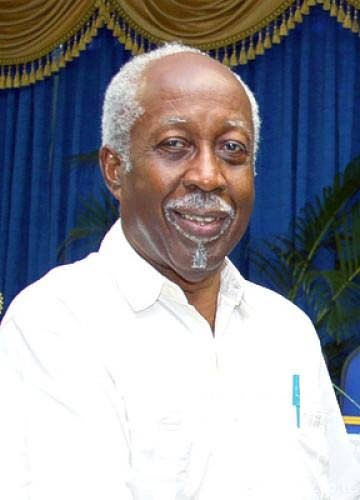The Police Service Commission

Reginald Dumas
THE REPORT of the chairman of the Police Service Commission (PSC) contained in the commission’s 2022 Annual Report makes interesting and, at times, surprising reading. It states at the outset that, in the PSC’s view, “the time has come for it to have more meaningful oversight of the (TT) Police Service.” It then makes a number of recommendations to that end, pointing out, however, that “the purpose of (the) recommendations is not to interfere with the commissioner’s managerial role but rather to provide strategic support to the commissioner in this regard.”
The Constitution does, at section 123A(1), confer “complete power” on the commissioner to manage the service. But that “complete power” is subject to section 123 (1), which itself sets out a number of functions with which the PSC is vested. One of them is the “power” to “hear and determine appeals from decisions of the (police commissioner)” in certain matters. It seems, therefore, that the commissioner’s “complete power” is not at all “complete.”
The chairman’s report outlines the 2006 constitutional amendments concerning the PSC, and speaks of a new structure for the commission approved by the Cabinet following those amendments and the 2007 report of the TT Police Service Transformation Project.
I suspect the country doesn’t know the genesis of all that activity. I therefore suggest a reading of pages 76 to 84 and 334 to 338 of The Public Service and Service Commissions, the invaluable book by the late Kenneth Lalla, who for years chaired both the Public and Police Service Commissions. I could add one or two things to what he wrote, but all I’ll say now, with apologies to William Congreve, is that “hell hath no fury like a self-important politician whose ego has been bruised.”
In the context of “support” to the commissioner, the PSC says it “is of the opinion that one of the ways to improve the present situation is to create a more effective oversight body which provides structured assistance to the commissioner in the management of the police service.” Apparently, the PSC is to be that body.
It also says that an “input in the creation of policies for the development and training of officers generally, and, in particular, for leadership positions will enhance the commission’s ability to recruit and select effective leaders from within the organisation.”
It adds that, to help it “appoint the most effective leader from within the ranks of the police service, (it should have) a strategic role in establishing the training requirements for members of the…service.” This is “crucial,” it says.
Although, where appointments in the police service are concerned, the PSC’s constitutional power is now limited to the posts of commissioner and deputy commissioner, the PSC feels that, “at the very least, (it should) be monitoring the performance” of assistant commissioners as well, and indeed that it should be “consulted on the criteria…for appointment” to the service’s top offices.
Noting that, remarkably, all but one of the people appointed since 2008 to the post of commissioner, acting or substantive, were 59 years old (with retirement at 60), the PSC proposes a retirement age of 65.Noting that, remarkably, all but one of the people appointed since 2008 to the post of commissioner, acting or substantive, were 59 years old (with retirement at 60), the PSC proposes a retirement age of 65
To assist it in properly examining the performance of the top officers, the PSC requests “the power to compel” – compel! – “organisations (like) the Financial Intelligence Unit, the Auditor-General, the Integrity Commission” etc “to provide it with relevant information…” And it believes that, to be “more effective in its oversight role it (should) be in a position to assist in determining the strategic direction of the…service.”
In this connection, it suggests that, “where it considers appropriate,” it make recommendations to the commissioner “relating to the management of the service” which might arise from any special report the commissioner submits to it under section 123(7) of the Constitution.
Other issues mentioned in the PSC report deal with lengthening of the PSC’s term of office, the need for independent investigators, staff, etc.
Implementation of many, if not most, of the PSC’s recommendations would demand profound constitutional change within the framework of good governance – the questions of jurisdictional boundaries and of implications for other service commissions at once spring to mind. In the current environment of unrelenting political confrontation, I wonder if such change is possible.
And given the intensely suspicious, hyper-critical nature of our society, there could be the public perception that the PSC is making a bid to manage, or direct the management of, the police service. Since perception is too often reality, the conclusion that political party considerations lie behind the PSC’s proposals would follow as the night the day. Remember this PSC’s immediate predecessor?
I have the feeling that the PSC, however well-meant its intentions, has some obstacles ahead.

Comments
"The Police Service Commission"